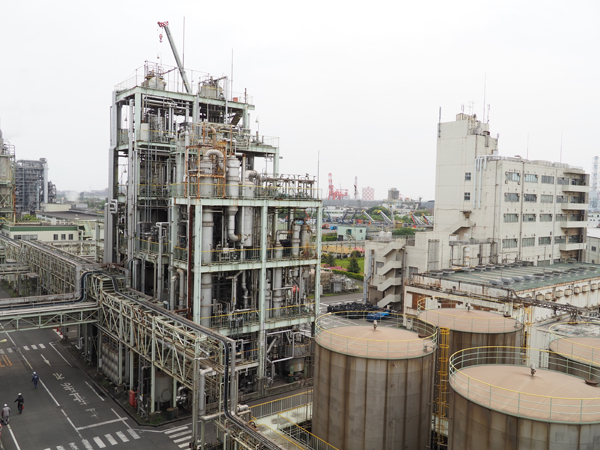Supporting a recycling-oriented society with chemical recycling technology JEPLAN

JEPLAN is a venture company whose philosophy is to “recycle everything”.
Currently, the focus is on recycling PET bottles for beverages and clothing using the company’s unique chemical recycling technology.
Hironori Sugiyama, Executive Officer and General Manager of the Sales Department, said, “The technology we are currently focusing on is a technology for chemically recycling a plastic material called polyethylene terephthalate, which is called chemical recycling in the industry. We own this technology. We are promoting its technological development and commercialization.”
Polyethylene terephthalate is abbreviated as PET. It is a general-purpose material used in familiar products such as PET bottles and polyester fiber for clothes.
JEPLAN’s chemical recycling technology decomposes used PET bottles and other materials down to the molecular level, and then removes all impurities by combining various purification processes. Removal of impurities makes the reclaimed resin comparable in quality to virgin PET resin made from petroleum.
JEPLAN has two bases, the Kawasaki factory and the Kitakyushu Hibikinada factory. The Kawasaki Plant is responsible for the recycling of PET bottles. The Kitakyushu Hibikinada Factory is a pilot plant that is also developing the recycling of clothes (polyester fiber) using chemical recycling technology.
The PET market is growing at an annual rate of 5%. Along with the global population increase, the demand for PET bottles and clothes is becoming a tailwind. On the other hand, environmental awareness is increasing on a global level, and global companies are promoting the use of environmentally friendly materials. Against this background, the company’s business is expected to make further leaps forward.
JEPLAN’s main customers are domestic companies and local governments, but it is also focusing on overseas business. As for PET bottles, we do business not only with domestic beverage manufacturers, but also with overseas beverage manufacturers.
Mr. Sugiyama says, “As a future development, we would like to spread our technology to factories around the world, such as providing overseas factories with our chemical recycling technology as a license.”
What is interesting is the deal with local governments. In cooperation with local governments, the company purchases waste PET bottles collected by local governments, recycles them at the Kawasaki Plant, and provides the recycled resin to trading companies and beverage manufacturers. In other words, domestic PET bottles are circulated domestically.
“Local governments have been collecting PET bottles in the past, but they used to export PET bottles to countries such as China and recycle them there. On the other hand, our company purchases PET bottles from local governments and circulates them domestically.There is a desire for local governments to circulate these bottles efficiently in Japan. There is a need to send information to the public,” says Sugiyama.
JEPLAN is considering inviting residents of each local government to visit factories, and visiting schools for environmental education using Sugoroku. Such efforts will lead to regional revitalization and educational activities for residents. is expected. Cooperation with local governments is also progressing, and currently we have partnerships with 22 local governments, including Kyoto City, Kushiro City, and Beppu City.
Currently, it is in the concept stage, but it is also considering building a recycling supply chain that starts with local governments. A recycling supply chain has existed in the past, but it was not designed to be traced all the way through.
“Local governments collect PET bottles, pre-process them, transport them to our company, recycle them, and return them as PET bottles. It will be possible to see when and how they have contributed to the reduction of CO2 emissions, in addition to their capabilities,” Sugiyama said.
As for clothes, until now there was no recycling technology to circulate resources, and there were many options for donating used clothes, repairing them, or incinerating them. The company found a problem here and applied the chemical recycling technology of PET to develop a technology to recycle polyester fibers.
Currently, he has launched a brand called “BRING TM”, collects unwanted clothes from all over the country, and recycles them at the company’s factory. It sells clothes made from recycled materials at its directly managed store in Ebisu, realizing a circular economy of “making clothes from clothes.”
JEPLAN also possesses recycling technology other than PET. Focusing on cotton, which is commonly used as a material for clothes, along with polyester, we have established a technology to recycle cotton into bioethanol and use it as fuel.
In 2021, efforts were also made to use it as fuel for JAL’s planes.
“We still have this technology, but it has not yet been commercialized. I want to,” Sugiyama said.
